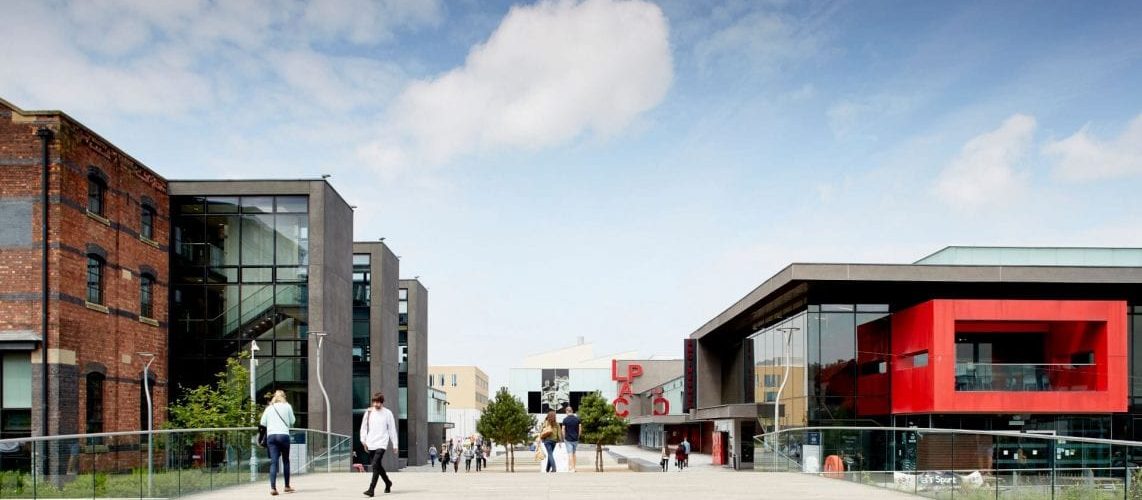The Professional Practice Fellowship, funded by Research Libraries UK and the Arts and Humanities Research Council, is a research grant designed to give librarians the time and capacity to carry out significant research projects aligned with their professional interests. My name is Hope Williard and I am one of the fellows for 2022-2023. This is the fourth in a series of posts about my project, The Lifelong Researcher: Supporting Doctoral Students’ Development of Digital Literacies.
Inspired by Brendan Keogh’s wonderful guest post on the Research Whisper, How to Run an Online Conference That Isn’t Horrible, I wanted to share a few thoughts on the online gatherings I am in the midst of organising for my project. My hope is that this post will be of interest, and perhaps of help, to future Professional Practice Fellows, and to fellow library professionals who want to organise online events but aren’t quite sure where to start.
My research focuses on how PhD students in history develop the skills to use digital tools and resources for their research. My project asks, what role do supervisors and librarians play in this process? Where does training in digital literacies sit within the wider landscape of research training at universities which, like the University of Lincoln, have an emerging rather than established research culture?
I am answering these questions in two ways. Firstly, by mapping and analysing research training programmes at Lincoln at a dozen peer institutions in the UK. Secondly, by conducting semi-structured interviews with UK-based doctoral researchers, history academics, and librarians, about their experiences and opinions of training in the use of digital tools and resources. There conversations are centred around discussion of what has gone well, what is missing, and what could be improved for the future.
Bringing people together to talk about these questions has been a project goal from the beginning. In the application for my Professional Practice Fellowship, I wrote:
I will also organise a one-day virtual colloquium to bring together library colleagues and PhD supervisors to discuss support for research students in history. This event will provide librarians and supervisors with the opportunity to share best practice with one another. The University of Lincoln is an ideal host and sponsor for such an event as we have strong links with History UK, an organisation which promotes, informs, and advocates for historians working in higher education. As a member of the History Research Libraries Committee, I am well placed to promote this event to my fellow history librarians. I will begin organising this event in September 2022, and it will take place in March 2023.
I wrote my proposal over the course of November and December 2021, and look back on that prospective timeline with an amused chuckle at my adorable optimism that I would somehow manage simultaneously to start my research and plan gatherings about that research. Seventeen weeks into my fellowship–exactly at the halfway point–is a bit behind where I wanted to be, but the upside is I am much more confident about the nature and scope of the event I want to organise.
Reflections
In planning and organising, I’ve done a fair amount of reading about digital conferences and thinking about my own experiences of organising and attending online events. Which leads me to the first thing I’m going to change from my proposal: the virtual colloquium is not going to be one day long. Instead, I am aiming for something that is between 90 minutes and three hours. In my experience of being one of the organisers of a small colloquium for the Mercian Collaboration, two hours seemed to work well: it allowed each of our speakers about fifteen minutes of active speaking time, a decent-sized question and discussion period, and a short break halfway through.
I find breaks in online events important. Breaks are a necessity during events which are focused on the speakers delivered information to the audience (rather than the speakers talking to each other, or engaging with the audience). I have attended events have gone on for longer than 90 minutes without any sort of pause in the middle and mostly found them hard going, however worthy their subject, without a chance to step away from the screen.
One thing I thing I haven’t decided how, or whether, to address is: am I going to try to facilitate socialising between participants and attendees? If so how? I have yet to experience a situation where breakout rooms have been effectively used to facilitate serendipitous random encounters (and in the reading I’ve done about online conferences that put a lot of thought into facilitating genuine online socializing, it was an outgrowth of the technology the host had available.) In my experience so far, where there is a critical mass of attendees, the chat can be lively enough that it has similar energy–but smaller online gatherings, especially those where the majority of the audience are librarians, tend to be a lot quieter. Leaving things to develop via the chat, Q&A and discussion periods, seems it might work for the type of small gathering I am hoping to host.
Lastly, I will need to keep reminding myself not to reinvent the wheel. Nearly three years into the pandemic, there is a wealth of experience, practice-sharing, and suggestions to draw on. The digital education team at my university has put together an excellent Online Academic Conference Toolkit, which I look forward to using as I continue to plan!
